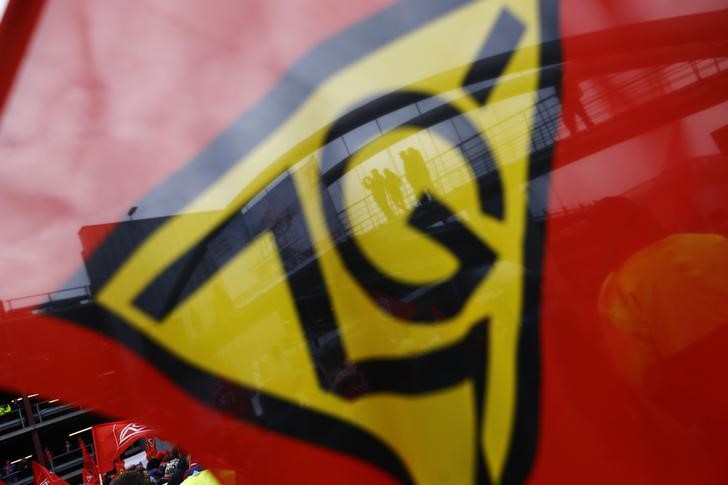By Geoffrey Smith
Investing.com -- Germany's biggest engineering union will seek a pay raise of between 7% and 8% in benchmark pay negotiations with employers, to stop their incomes from being eroded by the highest inflation in over 30 years, German media reported on Thursday.
Public broadcasters in two of Germany's largest states, Bavaria and Lower Saxony, cited local union officials as saying that they will strive for a settlement in the 7%-8% range, despite the pressure on corporate profit margins from surging energy costs and other disruptions linked to the pandemic and Russia's invasion of Ukraine.
Regional wage commissions at IG Metall across various states are making their proposals to the union's national headquarters on Thursday. The national HQ in Frankfurt will then adopt a formal decision on July 11th. Formal negotiations with employers will then take place after the summer.
Settlements tend to be typically considerably lower than the union's initial claims. As such, it's unlikely that the final figure will match the 7.1% average inflation figure that the Deutsche Bundesbank is forecasting for the German economy this year. Negotiators for the glass-workers' chapter of IG Metall recently agreed to a 4.7% increase for the coming year.
IG Metall's wage settlements are important because they serve as a benchmark for others in the private sector in Germany. They thus have a significant influence on overall wage inflation in Europe's largest economy, even though that significance has weakened during two decades of extraordinary restraint due to deindustrialization and the offshoring of many manufacturing jobs to central Europe. The pace of change in German wages is in turn a key consideration for the European Central Bank's assessment of overall inflation dynamics in the Eurozone.
IG Metall is preparing to present its demands at a time when the German economy is coming under increasing stress with regard to energy supplies. Russia has cut its shipments of natural gas to the country by 60%, causing the government to declare a state of 'alarm' and initiate emergency planning for the coming winter. Uniper (F:UN01), one of Germany's biggest energy suppliers, said late on Wednesday that it is in talks with the federal government for a bailout, as it is losing money due to its inability to pass on the cost of gas that it is buying at record high prices to cover its shortfall from Gazprom (MCX:GAZP).
